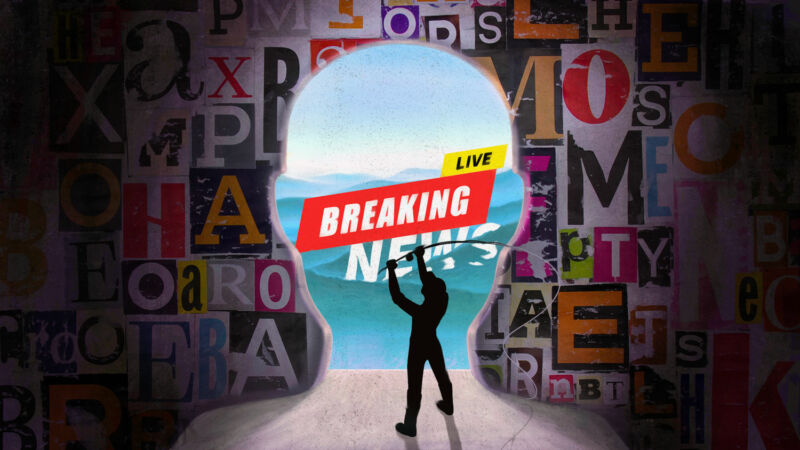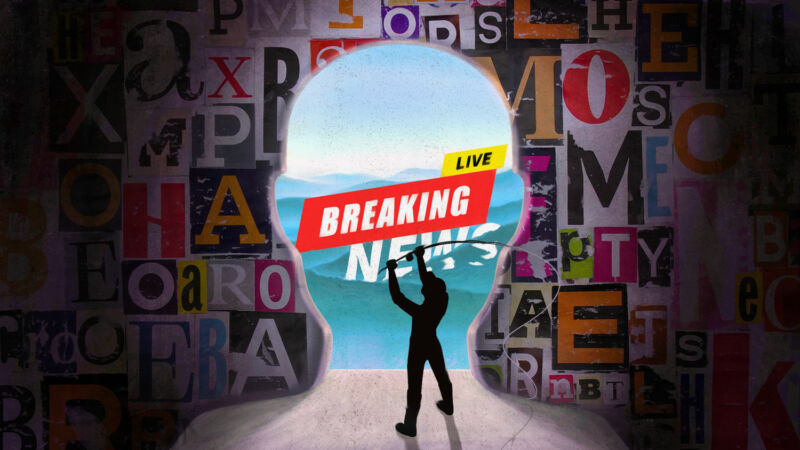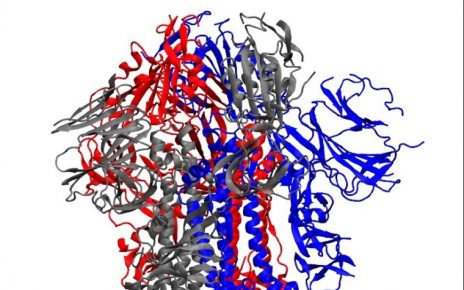
Enlarge (credit: Aurich Lawson | Getty Images)
The Dunning-Kruger effect is perhaps both one of the the most famous biases in human behavior—and the most predictable. It posits that people who don’t understand a topic also lack sufficient knowledge to recognize that they don’t understand it. Instead, they know just enough to convince themselves they’re completely on top of the topic, with results ranging from hilarious to painful.
Inspired by the widespread sharing of news articles that are blatantly false, a team of US-based researchers looked into whether Dunning-Kruger might be operating in the field of media literacy. Not surprisingly, people do, in fact, overestimate their ability to identify misleading news. But the details are complicated, and there’s no obvious route to overcoming this bias in any case.
Evaluating the news
Media literacy has the potential to limit the rapid spread of misinformation. Assuming people care about the accuracy of the things they like or share—something that’s far from guaranteed—a stronger media literacy would help people evaluate if something was likely to be accurate before pressing that share button. Evaluating the credibility of sources is an essential part of that process.





